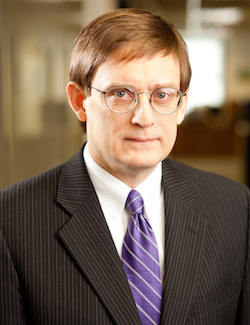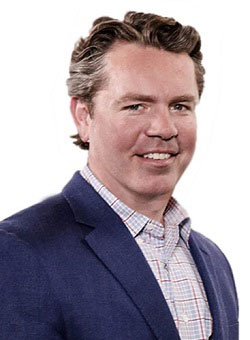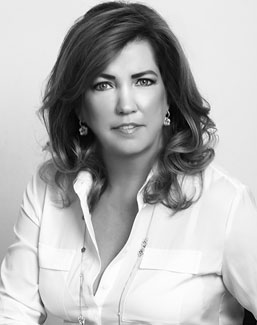Transcripts
 Erik: Joining me next the program is CPM Group founder Jeffrey Christian, very well known as a precious metals expert.
Erik: Joining me next the program is CPM Group founder Jeffrey Christian, very well known as a precious metals expert.
Jeff, I want to start with this story in gold. I’ve been watching this market for months and months. It seemed to me like there wasn’t a whole lot of a story to tell. It was inverse of the dollar, as you would expect.
But then, on October 11, we saw gold and the dollar move up on the same day and they moved up big in both the dollar and gold. I think that’s perplexed a lot of people. A whole bunch of conspiracy theorists said, okay, that means that the secret Chinese manipulation is over and we’re about to go to $2,000.
But a couple of weeks went by and things have settled down. We’re starting to trade lower again. So do you have any explanation of what changed around the 11th of October? And how that’s played into markets?
 Erik: Joining me next is Hedgeye founder Keith McCullough.
Erik: Joining me next is Hedgeye founder Keith McCullough.
Keith, it’s been a year – I can’t believe it – since we had you on the program. Last time that you were on, I think that you were very much bullish real growth and there were a lot of naysayers saying the market was headed lower. You were adamant, and you were proven right.
Now things have changed and we actually got a little bit of a heads up from your colleague Darius Dale when we had him on the program. He said, hmm, we are not firmly bullish anymore. We’re starting to think twice.
As I look at Slide 5 in your deck, it looks like you guys have moved into the fourth quad. So talk about the four quads, why you use them in your process. But, particularly, how did we end up here underneath the neutral line in the fourth quad? And where is it headed.
Keith: I appreciate you recapping that Erik, because being a bull or a bear permanently is no permanent position to take. And, really, we’ve built the process, or I have, over the course of the last long while trying to use the two most causal things that change markets, which are the rates of change and growth in inflation to get ahead of any change from bullish to bearish or bearish to bullish.
 Erik: Joining me now is Dr. Pippa Malmgren.
Erik: Joining me now is Dr. Pippa Malmgren.
Pippa, everybody on this program knows you for your past appearances as a geopolitical consultant and analyst and advisor to two US presidents, not to mention a consultant to the government of the United Kingdom – a very geopolitical and government background.
It’s so out of character, it would seem, as a former tech entrepreneur myself, the last person that tech entrepreneurs think of as rolling up their sleeves and building something are geopolitical analysts that are engaged in government.
But you are also the founder of a robotics drone company, H Robotics.
So give us the personal story here. How did you get from advising US presidents to rolling up your sleeves and starting a company to build drones?
Pippa: Well, here’s the thing. I was in the markets advising big institutional investors for many years, first at Bankers Trust and then UBS and then on my own. And what I found is I could be right. I could make really big calls. Like, I sold everything before the financial crisis, I told all my clients to sell everything, asked critical questions about the stability of the firms they worked for, and I was right.
But I couldn’t really make any money out of it because I didn’t have a balance sheet.
So over the years I’ve been very aware that I needed to get involved in the real economy in some way if I wanted to participate in the performance. And about six or seven years ago, I started to have the view that the financial market was going to start to shrink because the regulators were going to make it shrink, circumstances would make it shrink, poor performance of assets would probably make it shrink, and therefore you might make more money running a real business than running a hedge fund – which has turned out to be exactly right.
 Erik: Joining me next on the program is Daniel Lecalle, a professor of global economics and chief economist for Tressis.
Erik: Joining me next on the program is Daniel Lecalle, a professor of global economics and chief economist for Tressis.
Daniel, thanks so much for joining us on the program. You and I are taping this interview a day before our listeners will hear it on Wednesday. Just as we began our phone call, we broke to new lows on the S&P 500, below the previous low – back on Oct. 11, I believe it was.
I think the big question on everybody’s mind – I’ll summarize this: Is this the big one? Are we really at the point where this longest bull market in history is over? And we’re about to see either a crash or a new bear market? Or is this just a pullback that needs to play out and maybe we’re headed to new all-time highs?
Daniel: Thank you so much for having me on the show. I think that what we’re seeing right now is, basically, that markets are starting to get nervous about a number of catalysts that were not expected to happen.
The first one being that bond yields, the US Treasuries, the 10-year, would be rising above what was considered to be a warning zone level.
The second one is the yuan weakness and the decision by the Chinese government to try to tackle the alleged trade war through competitive devaluations.
Those two catalysts are doing two things. The first one is taking money out of riskier assets, out of emerging markets, out of the Eurozone equities, out of US equities, into safer assets.
The second one is sending deflationary signals to the rest of the world.
 Erik: Joining me next on the program is Professor Steve Hanke from Johns Hopkins University.
Erik: Joining me next on the program is Professor Steve Hanke from Johns Hopkins University.
Steve, thanks so much for joining us on the program. We’ve got you on at a time in markets where the equity market is starting to hiccup. A lot of people are questioning whether or not the central bank liquidity funded bull market might be coming to an end. I think it would be productive to get your perspective, not just immediately on the current situation, but going back to how we got here.
So, going back to the last crisis, from your perspective, what were the driving factors? How has it affected monetary policy? And what has actually been driving this massive bull market of the last 10 years?
Steve: Well, thank you, Erik, for that introduction.
If you go back to the crisis, shall we say in 2008, and the start of the Great Recession in 2009, I think it’s important to note that the Fed has a propensity to blow bubbles and pop bubbles. So money is important. Money dominates.
And if you look at money, it’s always wise to look at broad money, the broadest measure of money, which actually is M4. And the best measure of it is what’s called the Divisia M4. It’s produced by the Center for Financial Stability in New York, not the Fed. The Fed has lousy numbers.
MACRO VOICES is presented for informational and entertainment purposes only. The information presented in MACRO VOICES should NOT be construed as investment advice. Always consult a licensed investment professional before making important investment decisions. The opinions expressed on MACRO VOICES are those of the participants. MACRO VOICES, its producers, and hosts Erik Townsend and Patrick Ceresna shall NOT be liable for losses resulting from investment decisions based on information or viewpoints presented on MACRO VOICES.
